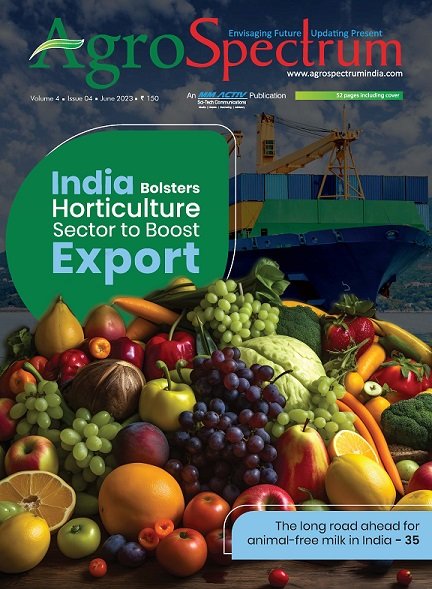Cabinet approves the Clean Plant Programme to revolutionise horticulture sector
Nine world class state-of-the-art Clean Plant Centres, equipped with advanced diagnostic therapeutics and tissue culture labs, will be established across India.
The Union Cabinet, chaired by the Prime Minister Narendra Modi, approved the Clean Plant Programme (CPP) proposed by the Ministry of Agriculture and Farmers Welfare. With a substantial investment of Rs 1,765.67 crore, this pioneering initiative is set to revolutionise the horticulture sector in India and expected to set new standards for excellence and sustainability. Announced earlier in the Budget Speech by the finance minister in February 2023, the CPP represents a major leap forward in enhancing the quality and productivity of fruit crops across the nation.
Key Benefits of the Clean Plant Programme (CPP):
Farmers: The CPP will provide access to virus-free, high-quality planting material, leading to increased crop yields and improved income opportunities.
Nurseries: Streamlined certification processes and infrastructure support will enable nurseries to efficiently propagate clean planting material, fostering growth and sustainability.
Consumers: The initiative will ensure that consumers benefit from superior produce that is free from viruses, enhancing the taste, appearance, and nutritional value of fruits.
Exports: By producing higher-quality, disease-free fruits, India will strengthen its position as a leading global exporter, expanding market opportunities and increasing its share in the international fruit trade.
The Programme will prioritise affordable access to clean plant material for all farmers, regardless of their landholding size or socioeconomic status. The Programme will actively engage women farmers in its planning and implementation, ensuring their access to resources, training and decision-making opportunities. The Programme will address the diverse agro-climatic conditions across India by developing region-specific clean plant varieties and technologies.
Core Components of the CPP:
Clean Plant Centers (CPCs): Nine world class state-of-the-art CPCs, equipped with advanced diagnostic therapeutics and tissue culture labs, will be established across India. These include Grapes (NRC, Pune), Temperate Fruits – Apple, Almond, Walnuts etc. (CITH, Srinagar &Mukteshwar), Citrus Fruits (CCRI, Nagpur & CIAH, Bikaner), Mango/Guava/Avacado (IIHR, Bangaluru), Mango/Guava/Litchi (CISH, Lucknow), Pomegranate (NRC, Sholapur) and Tropical/Sub-Tropical Fruits in Eastern India. These centres will play a crucial role in producing and maintaining virus-free planting material meant for larger propagation.
Certification and Legal Framework: A robust certification system will be implemented, supported by a regulatory framework under the Seeds Act 1966, to ensure thorough accountability and traceability in planting material production and sale.
Enhanced Infrastructure: Support will be provided to large-scale nurseries for the development of infrastructure, facilitating the efficient multiplication of clean planting material.
Nine world class state-of-the-art Clean Plant Centres,




